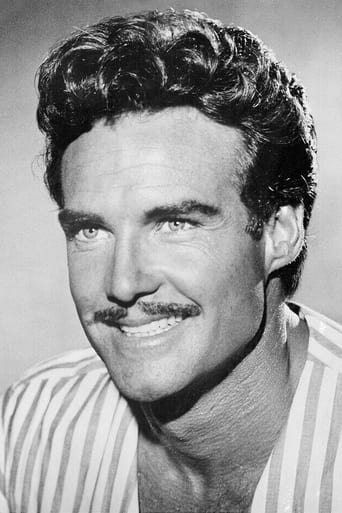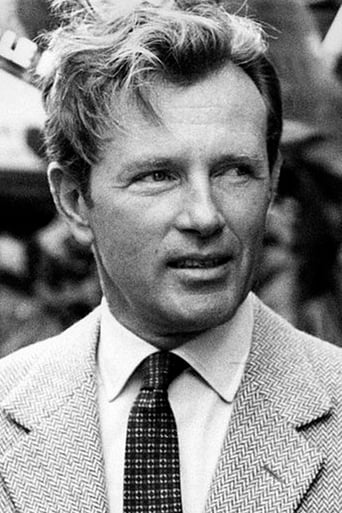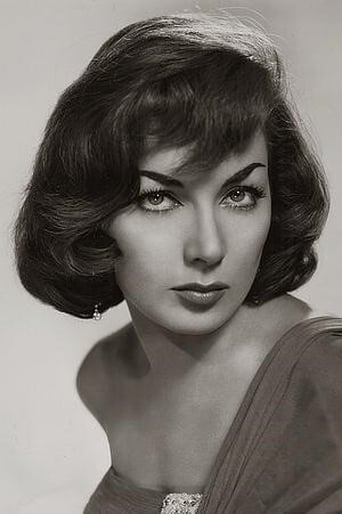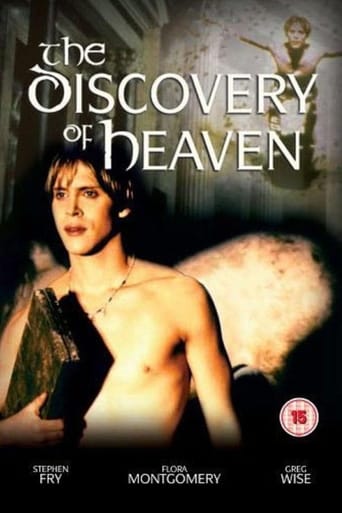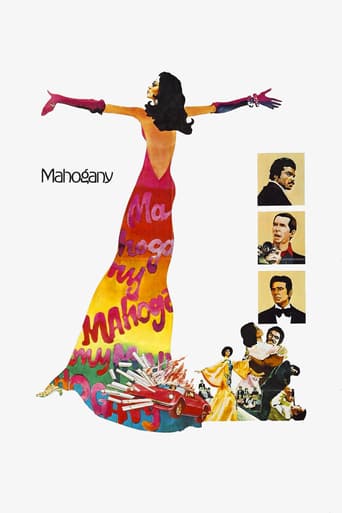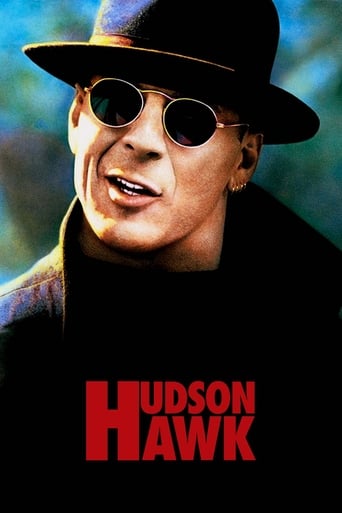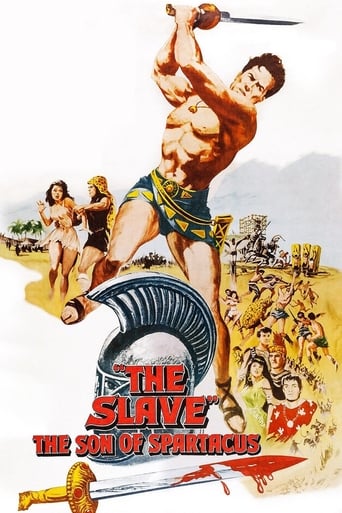
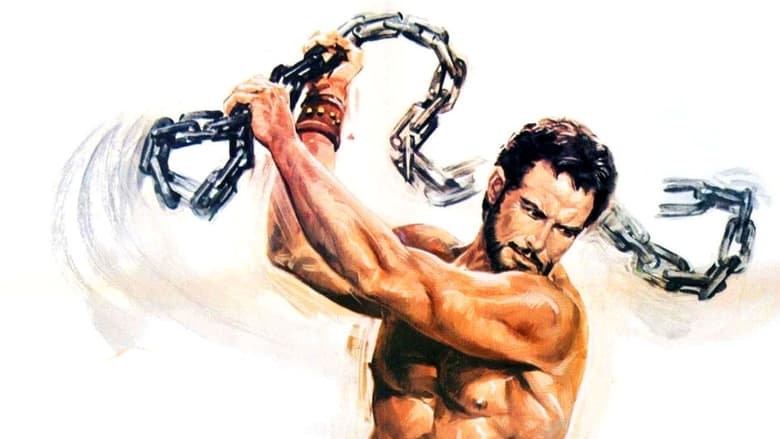
The Slave (1962)
The decurion Randus holds himself so well in the command of his troops, that Caesar promotes him to centurion. He is subsequently sent to Egypt, to keep Cesar informed on the actions and intentions of co-triumvir Marcus Licinius Crassus - a man too rich, and ambitious, for Caesar's comfort. A fateful sea trip from Egypt to Rome forces Randus in captivity by mercenary troops, and leads a revolt by which he gets freedom for himself, and all the other slaves. Through an amulet he received from his late mother, a man who had fought by Spartacus' side, identifies the young man as Spartacus' and Varinia's son. At first reluctant to accept this story about his origins, Randus will be forced by the circumstances to repeat the feat of his father, twenty years later.
Watch Trailer
Cast
Similar titles
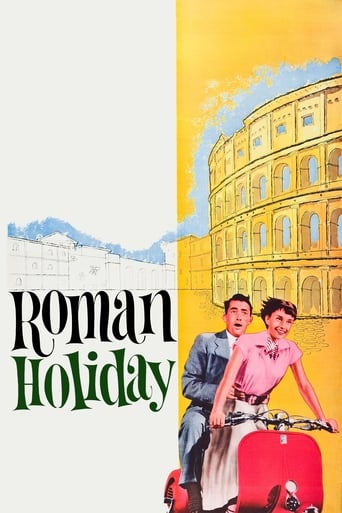

Reviews
Better Late Then Never
Absolutely Fantastic
Clever and entertaining enough to recommend even to members of the 1%
A terrific literary drama and character piece that shows how the process of creating art can be seen differently by those doing it and those looking at it from the outside.
One of the better Sword and Sandal movies from the golden era of the genre (the 1960's). Awesome to see Steve Reeves in his prime. If this movie had been made in the 1980's, no doubt Schwarzenegger would have been the lead. Beautifully shot on location in Egypt, the setting really does seem to improve the movie. Lot's of action, plenty of sword fights and cool set pieces. I think what stood out to me the most about this movie was the similarities to the "Zorro" story. Reeve's character is a bit like a super hero, darting off out of view to change in to a costume (son of Spartacus) that hides his true identity. Zorro would leave his mark, a "Z" carved with his sword. Son of Spartacus leaves an "S" carved or painted in to shields and walls to terrorize the abusive governor. It really did strike me as "Zorro" set in Roman times and happening in Egypt. Check out the size of the mole on the neck of the guy that played Caesar. Holy crap, he should have had that thing surgically removed. It was like a vestigial twin living on his shoulder/neck. Grotesque! Overall, a good sword and sandal movie that I would have loved when I was 8 - 12 years old. Somehow I only just saw this movie for the first time now that I am 45 years old, but I still enjoyed it.
Copyright 31 December 1962 by Titanus-Arta Cinematografica. Released through Metro-Goldwyn-Mayer. New York opening at neighborhood cinemas on a double bill with "It Happened at the World's Fair": 29 May 1963. U.S. release: 29 May 1963. U.K. release: 29 December 1963. Australian release: 22 August 1963. 9,180 feet. 102 minutes. Original Italian title: Il FIGLIO DI SPARTACUS. U.S. release title: The SLAVE.SYNOPSIS: In 48 B.C., Julius Caesar sends a young centurion named Randus to investigate the rule of the corrupt Grassus in the province of Lydia. En route by sea, Randus' ship runs aground and he is captured by a band of slave drivers. But he leads a revolt and the slaves defeat and destroy their captors. By means of an amulet he wears, Randus is then identified as the son of Spartacus, the gladiator-slave who was crucified twenty years earlier for warring against Rome. Arriving in Lydia, Randus is met by Grassus, his wily mistress Clodia, and her warrior brother Vezio. Outwardly pretending friendship, Randus secretly carries on his father's work by leading the enslaved Lydians in a revolt.NOTES: Released in Italy in 1962 in a 110-minute version. The version released by M-G-M in America, England and Australia was of course English-dubbed.COMMENT: Most of the sword-and-sandal epics released in such profusion in the 1960s were instantly forgettable exploitation, drive-in fare. "The Son of Spartacus", though obviously designed to cash in on the success of the Kirk Douglas hit, was a surprising exception which unexpectedly offered audiences really outstanding entertainment. A large part of "Spartacus" it will be remembered was taken up with gladiatorial combat. Unlike "Barabbas", "Son of Spartacus" does not make the mistake of showing audiences these scenes all over again. Instead, Andriano Bolzoni's astonishingly literate script concentrates on Caesar's campaign against Grassus. These two are superbly brought to life by Ivo Garrani and Claudio Gora, respectively. As Grassus's lieutenant, Jacques Sernas acquits himself well, as does Gianna Maria Canale (as his sister), Ombretta Colli (the slave girl) and even Steve Reeves in the title role (a very pleasingly accented English voice is used for Mr. Reeves instead of the strident American tones employed for him in previous epics).Corbucci's direction is quite interesting (I like his profile studies of Caesar and Clodia), while Franco Giraldi's 2nd unit work in the shadow of the Pyramids themselves is vigorously staged and most effective.
This film, made at the twilight of Mr. Reeves film career, is certainly one of his best. The location work in Egypt and a rather big budget look add a great amount of, shall I say it?, realism to an essentially escapist, fantastical genre- the Italian sword and sandal flicks of the 1958-64 period. This picture also features some extremely diabolical villainy on the part of Crassus. Sir Laurence Olivier wasn't nearly this outrageously evil playing the same character in SPARTACUS! Steve's dilemma is pretty heavy in this one, doing a complete 180 from up and coming Roman centurions to advocate warrior of the freedom movement for the slaves of Rome. The action scenes stand up pretty well after 40 plus years.
That "Il figlio di Spartacus" is one of the better sword'n'sandal flicks of the main period (1958-64) is basically due to two aspects: a fluent storyline and original sets in Egypt.Writers Adriano Bolzoni, Bruno Corbucci and Giovanni Grimaldi (plus perhaps director Sergio Corbucci) have scripted a plot that continues the story of Spartacus where Stanley Kubrick left off in 1960 in his Hollywood production with Kirk Douglas. While Kubrick certainly stuck to the historical facts, the follow-up is complete fiction. Tough daredevil Douglas is replaced by smart bodybuilder Steve Reeves as his son, although this was not the worst choice. Reeves, the original Hercules performer of 1958, does quite well in the rôle of Randus, a Roman centurio (this seems to be considered as the highest military rank in "peplums"!), who is confronted with the fact that he seems to be the son of the legendary slave leader, Spartacus, who had once been smashed and crucified by the Roman consul, Crassus. Reeves' good looks distinguish him from Douglas very remarkably, but there's his Germanic combatant Verus (Franco Balducci), who is styled like Douglas two years ealier.They needed to change history to a considerable extent (the story takes place in 48 B.C. when the real Crassus was already dead for five years) so that the fictive Randus could be 23 (Reeves was 36 by then) and Caesar could be involved. Note that the Sphinx has already lost its nose (which it did only 1850 years later) while serving as a likeable background to a talk between Caesar (Ivo Garrani), his adjutant Verulus (Renato Baldini, who has almost nothing to say), and Randus. Choosing the Egyptian landscape, including desert, oases and the pyramids of Gizeh, for the outdoor scenes adds greatly to the picture's atmosphere.Corbucci manages to handle the camera positions and angles very well, almost experimentally for a production like this. Director of photography was Enzo Barboni, the later standard director of the Terence Hill/Bud Spencer movies. There is a foreshadowing of the spaghetti westerns not only in the techniques, but also with a surprisingly high level of brutality as depicted by Corbucci.The story's main idea has Randus in the dilemma of being a Roman officer on the one hand and having the experience of being enslaved on the other. Only in this situation, he feels into the slaves' minds and puts himself at the head of the revolt against Crassus. The rest is a bit stealing from the "Zorro" idea, including the "S" (for Spartacus) mark. As Western European ideology would have it (we're at the climax of American-Russian confrontation) before a revolutionary attitude became fashionable in Italo westerns, Randus fights for freedom (from slavery), not for redistribution of capital.Gianna Maria Canale, leading actress of many a peplum since the earlier days (playing the title rôle in "Teodora", among others), is fine as Crassus' love interest. But Claudio Gora can give all he can as the terrible Crassus, right down to an exaggerated paranoid Nero-like figure.It's worth while, anyway.
